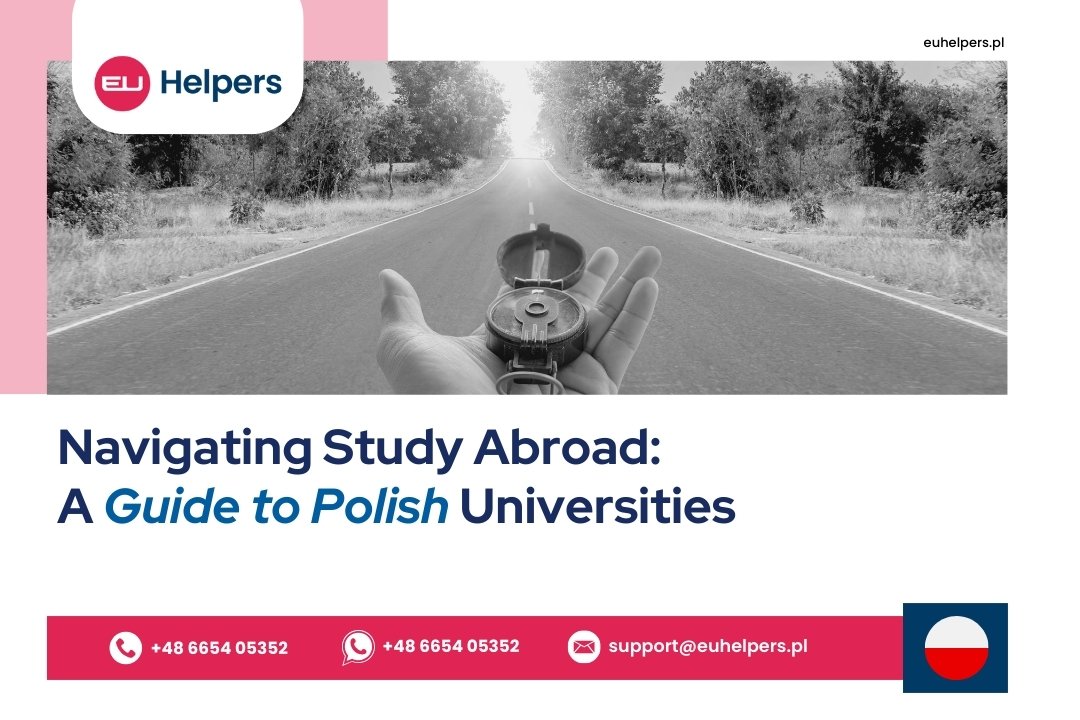Navigating Study Abroad: A Guide to Polish Universities
Studying abroad in Poland can be a transformative experience, offering a rich cultural heritage, high-quality education, and vibrant student life. This guide provides a concise overview of navigating Polish universities, highlighting key aspects for prospective students.
1. Diverse Academic Opportunities:
Poland boasts a diverse range of academic programs taught in English, covering fields from science and technology to humanities. Renowned universities like the University of Warsaw and Jagiellonian University offer globally recognized degrees, attracting students from around the world.
2. Admission Process:
Admission requirements vary, but generally include a completed application form, academic transcripts, and proof of English proficiency (usually through standardized tests like IELTS or TOEFL). Some programs may require additional entrance exams or interviews.
3. Cost of Living:
Poland is relatively affordable compared to other European countries. While tuition fees are reasonable, the cost of living, including accommodation, food, and transportation, is budget-friendly for students. Major cities like Warsaw and Krakow offer a mix of affordable and comfortable living options.
4. Scholarships and Financial Aid:
Numerous scholarships are available for international students, both from the Polish government and various institutions. Applicants should explore scholarship opportunities to ease the financial burden of studying abroad.
5. Language Considerations:
While many programs are offered in English, learning basic Polish can enhance the overall experience and daily life. Universities often provide language courses, and locals appreciate efforts to communicate in their native tongue.
6. Cultural Adaptation:
Poland's rich history and cultural diversity offer a unique experience for international students. Embracing local traditions, attending events, and participating in student organizations can facilitate cultural adaptation and integration.
7. Student Life:
Polish universities are known for their lively student communities. Engaging in extracurricular activities, joining clubs, and participating in events contribute to a fulfilling student life. The Erasmus program also provides opportunities for international students to explore various European cultures.
8. Quality of Education:
Polish universities maintain high academic standards. Check accreditation and rankings to ensure the chosen institution meets your academic expectations. The Bologna Process ensures compatibility with other European education systems, facilitating credit transfers.
9. Work Opportunities:
International students can work part-time during the academic year and full-time during semester breaks, offering a chance to gain practical experience and offset living expenses. Poland's growing economy provides opportunities in various sectors.
10. Health Insurance:
Health insurance is mandatory for international students in Poland. Ensure you have comprehensive coverage to access medical services during your stay.
11. Travel and Exploration:
Situated in the heart of Europe, Poland offers easy access to neighbouring countries. Take advantage of affordable travel options to explore Europe's diverse landscapes and cultures.
12. Post-Graduation Opportunities:
Poland allows international students to extend their stay for job-seeking purposes after graduation. Explore career services provided by universities to connect with potential employers and navigate the job market.
In conclusion, studying in Poland presents an exciting opportunity for personal and academic growth. Navigating the process involves thorough research, cultural openness, and proactive engagement with the academic and social aspects of university life. Embrace the experience, and Poland can become not just a destination for education but a second home filled with enriching experiences.

